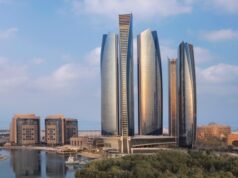 ISRAEL—With climate change and rising pollution rates being rampant issues today, countries around the world are focusing their efforts on reducing the negative impact of human activity on the environment and finding new solutions to set the foundation for sustainable development. Of all the countries that have pledged to take concrete and tangible action to protect the planet and address nature and biodiversity loss, Israel stands out as a sustainability leader.
ISRAEL—With climate change and rising pollution rates being rampant issues today, countries around the world are focusing their efforts on reducing the negative impact of human activity on the environment and finding new solutions to set the foundation for sustainable development. Of all the countries that have pledged to take concrete and tangible action to protect the planet and address nature and biodiversity loss, Israel stands out as a sustainability leader.
Despite being a densely populated country characterized by land scarcity, limited natural resources and poor distribution of these resources, Israel has managed to offset many of these challenges by investing heavily in eco-friendly initiatives, thus becoming one of the most important players in sustainable development. From implementing recycling programs and developing desalination technology to offering cash grants to companies that reduce pollution and encouraging green pilgrimage across the country, Israel has visibly boosted its sustainability practices and strengthened its environmental policies over time.
Figures are quite revealing in this respect: Israel boasts no less than 650 companies in the clean technologies or Greentech sector, being a key international distributor of innovative tech solutions addressing a variety of environmental concerns. What’s more, over 87 percent of the wastewater in the country is being recycled and reused for agriculture. This is even more remarkable considering that Israel’s contribution to global pollution rates is minimal.
However, Israel has no plans to slow down its sustainability efforts. On the contrary, in July 2021 the country committed to bringing down its greenhouse gas emissions by at least 85 percent until 2050, and the newly introduced green building standards play an important role in achieving this bold goal.
The Future of Construction is Green
Israel is moving away from traditional construction practices with the introduction of green building standards that are meant to change the way new buildings are erected in order to reduce the negative impact on the environment both during and after construction. These standards which came into effect in March 2022, tackle every stage and area of the construction process, from the materials that are being used to the design of the building, performance, durability, maintenance, and deconstruction.
Also, developers will have to provide home buyers with information regarding the energy efficiency of each structure, like how electronic appliances such as fridges or TVs are being rated. The idea is to create buildings that are sustainable and whose construction, operation and maintenance have a minimal impact on the surrounding environment. Every new building erected in Israel will have to comply with these green standards, thus increasing the country’s sustainability credentials.
The Push for Environmentally Friendly Practices in the Construction Sector
Of course, Israel isn’t the only country in the world that has taken the green route in construction. These types of enterprises have emerged in many parts of the world in recent years because of the increasing awareness of environmental concerns at a global level. Data provided by the UN’s Intergovernmental Panel on Climate Change reveal that cities account for over 70 percent of global CO2 emissions, and a large part of these emissions come from the construction sector.
What’s more, the 2020 Global Status Report for Buildings and Construction conducted by the Global Alliance for Buildings and Construction (GlobalABC) clearly shows that CO2 emissions from the energy sector reached alarming levels in 2019. Given that fossil-fueled electricity has the largest carbon footprint of all energy sources, the building construction industry emerged as a major contributor to global energy-related CO2 emissions.
These findings stressed the urgency of implementing immediate solutions that could help reduce and reverse the global climate crisis. Therefore, if Israel wants to reach its 2050 sustainability goals, greenifying operations and processes in the construction sector is more important than ever.
People are also a lot more concerned about reducing their carbon footprint these days than they were a few years ago. Young Jews especially have infinitely more educational resources such as WCJE at their disposal than previous generations, so they have extensive knowledge of climate change, pollution and the factors that have led to the current environmental crisis. This means that developers must meet the needs and demands of the new generation of homebuyers for whom sustainability has become a priority.
Making Buildings Greener One Step at a Time
The introduction of mandatory green building standards in Israel sounds like a great idea in theory, but most people don’t know what it implies. Israel’s green building policies are separated into three main categories: sustainable building, energy rating of buildings and thermal insulation of buildings. The first category lays out the minimum requirements that a structure, whether new or undergoing renovation, must adhere to in order to earn the green certification from the Standards Institution of Israel. The areas that are tacked include energy, land, water, waste, health and wellbeing, environmental management, materials, transportation, and innovation.
In order to obtain the sustainable building certification, compliance with the second set of standards which focuses on the energy rating of buildings is also required. These standards assist with energy rating evaluation of both commercial and residential buildings, taking into consideration a range of factors such as construction, lighting, and climate conditions.
Finally, the last category of standards looks at the minimal thermal insulation requirements that buildings ensuring overnight stays must comply with in order to ensure that the indoor temperature is kept at an optimum level.
With buildings playing a central role in ensuring a safe and healthy environment for us all, it makes perfect sense to focus on greenifying this sector as much as possible. So, Israel’s green building standards represent just one in a long series of initiatives that are meant to protect the environment and pave the path to a better tomorrow for current residents and the generations to come.







